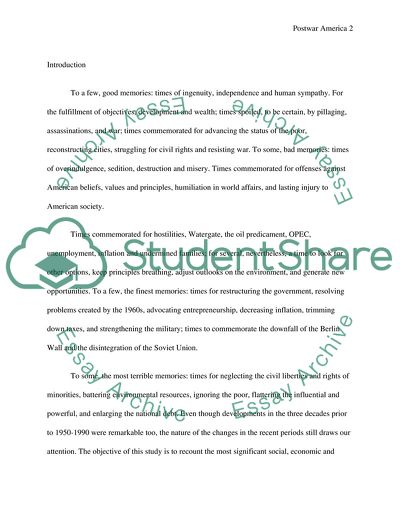Cite this document
(Postwar America Essay Example | Topics and Well Written Essays - 2291 words, n.d.)
Postwar America Essay Example | Topics and Well Written Essays - 2291 words. Retrieved from https://studentshare.org/history/1728975-most-significant-events
Postwar America Essay Example | Topics and Well Written Essays - 2291 words. Retrieved from https://studentshare.org/history/1728975-most-significant-events
(Postwar America Essay Example | Topics and Well Written Essays - 2291 Words)
Postwar America Essay Example | Topics and Well Written Essays - 2291 Words. https://studentshare.org/history/1728975-most-significant-events.
Postwar America Essay Example | Topics and Well Written Essays - 2291 Words. https://studentshare.org/history/1728975-most-significant-events.
“Postwar America Essay Example | Topics and Well Written Essays - 2291 Words”, n.d. https://studentshare.org/history/1728975-most-significant-events.


